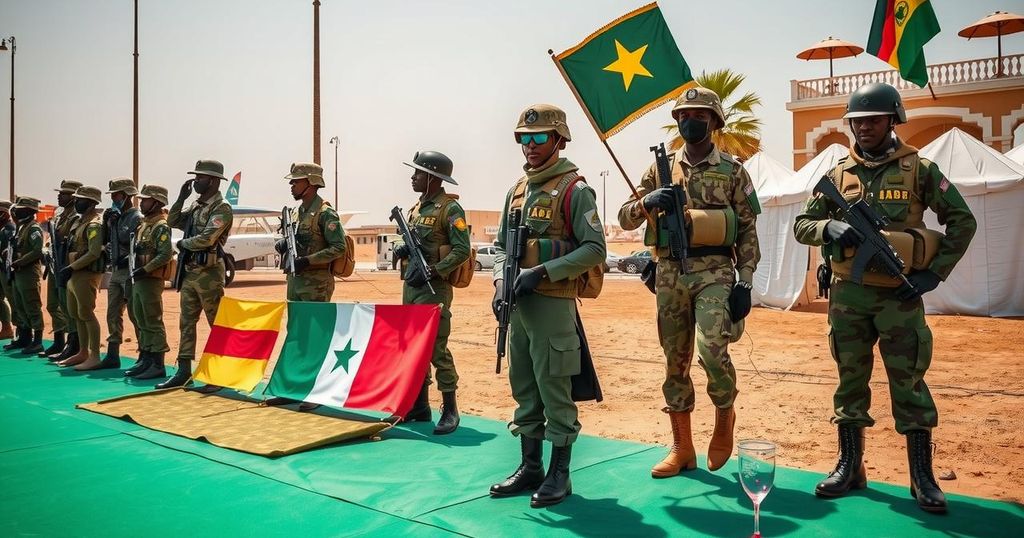Senegal and Chad Declared Sovereignty with Withdrawal of French Troops
Senegal and Chad have asserted their sovereignty by independently deciding to expel French troops, contrary to French President Emmanuel Macron’s implications. This move occurs amidst a French reevaluation of its military presence in Africa. Both nations emphasize their autonomy, highlighting frustrations over historical patterns of influence. Macron’s proposed changes to France’s military strategy signal a significant shift in relations, challenging the traditional dynamics of Françafrique.
Leaders from Senegal and Chad have recently underscored their sovereign right to expel French troops from their nations, firmly rejecting suggestions from French President Emmanuel Macron that the withdrawal was not entirely autonomous. This decision coincided with a broader reassessment of French military presence in Africa, particularly following France’s contemplation of decreasing its troop commitments across the continent.
During a gathering with foreign diplomats, President Macron remarked on France’s proposal for reorganizing its military engagements in Africa, asserting that he had given due respect to African leaders by informing them first. However, Senegal’s Prime Minister asserted that there had been no dialogue regarding the withdrawal, emphasizing that it was a unilateral decision made by Senegal as a sovereign entity. The troop withdrawal echoes similar departures in Mali, Burkina Faso, and Niger, where French forces have already retreated amid shifts to military governance.
Macron has signaled a movement toward a new partnership focused on security while reducing troop levels by 2023, pivoting to an approach more aligned with the expressed needs of African nations. However, Chadian Foreign Minister criticized Macron’s comments as indicative of a dismissive stance toward Africa, noting that France’s military presence in Chad has shown minimal effectiveness over the past six decades.
Historically characterized as “Françafrique,” France’s policy of maintaining economic, political, and military dominance in its erstwhile colonies has included sustaining substantial military deployments in the region. Presently, French troops remain in places such as Ivory Coast, Senegal, Gabon, and Djibouti, while previously being stationed in Chad, with a main role in training local forces to combat extremism and aid peacekeeping operations. Detractors assert that such continued presence allows France to maintain its influence and safeguard regimes sympathetic to its interests.
The contemporary dynamics between France and its former African colonies, particularly Senegal and Chad, reflect a significant shift in military and diplomatic relations. The historical backdrop, often referred to as “Françafrique,” encapsulates France’s enduring influence over the political and military affairs of African nations it once colonized. This influence has fostered a complicated relationship characterized by a significant French military presence, ostensibly for peacekeeping and training local forces, yet often criticized for undermining true sovereignty and autonomy of African states. The latest developments signal not only a reevaluation of these relationships but also a pursuit of independent foreign policies by these African nations.
In conclusion, the firm stance taken by Senegal and Chad regarding the withdrawal of French troops reflects a broader aspiration for sovereignty and self-determination in Africa. Despite President Macron’s comments suggesting a collaborative decision, both nations reaffirm their independence in this matter. The ongoing evolution of France’s military presence in Africa raises important questions regarding the future of bilateral relations, sovereignty, and the role of external powers in African security affairs.
Original Source: www.inkl.com








Post Comment